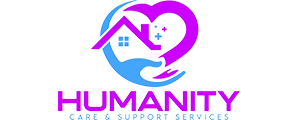NATURE OF THE SERVICES PROVIDED
The HumanityCSS carers are trained in accordance with Skills for Care Common Induction Standards as well as bespoke trainings tailored to meet the specific needs of their client group. The Carers are supervised and supported to provide a high-quality service to a wide range of people who need care and support whilst living in their own homes. They ensure that Service users feel they are treated with respect and valued as a person, and that their right to privacy is upheld.

Service users are assisted in making their own decisions to control their own lives and are supported in maintaining their independence.
All service users are treated equally and are protected against any form of discrimination.
A Service user’s care plan is produced through consultation with each individual care user, their families and authorized persons. It will include information about the client’s care needs, wishes, preferences and personal goals. Key personal and care support is provided with:
· Dressing and undressing
· Bathing, washing, shaving and oral hygiene
· Toilet and continence requirements
· Medication requirements and other health-related activities
· Manual handling
· Eating and meals
· Handling personal possessions and documents
SPECIALIST TASKS
There are aspects of the service that require staff to have specific experience or training in order to ensure they are performed correctly. Tasks requiring special training or experience include:
· Catheter care – changing bags, monitoring output and emptying bags
· Assistance with eye or ear drops
· Medication
· Assistance with ileostomy and colostomy care
All care staff are will be assessed for competency before providing the above care duties. Care workers will NOT undertake tasks that require the skills and expertise of clinical professionals. Such tasks include:
· Toe and nail cutting
· Ear syringing
· Removing or replacing urinary catheters
· Bowel evacuations
· Bladder washouts
· Injections involving assembling syringes and administering controlled drugs intravenously
· Filling of oxygen cylinders
· Lifting from the floor unaided or bearing the weight of a client
· Tracheotomy care – changing tubes
· Skin prick tests for diabetics
· Any invasive procedures
